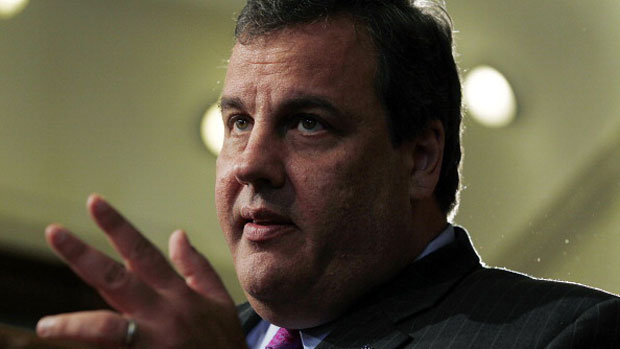Chris Christie is just another old-fashioned New Jersey boss
Before he became governor, Christie was a zealous prosecutor. And it shows, writes Terry Golway

A free daily email with the biggest news stories of the day – and the best features from TheWeek.com
You are now subscribed
Your newsletter sign-up was successful
CHRIS CHRISTIE has always encouraged voters to see him as anything but a politician. His lips seem to curl with contempt whenever he mentions New Jersey’s state capital, Trenton. He has long portrayed himself as an everyday citizen who shared the electorate’s disgust with shady politicians.
Actually, before Christie became governor of New Jersey, he did more than simply sneer at politicians: he brought them into courtrooms in handcuffs. He was the federal government’s chief prosecutor for the state, and in that role he indicted dozens of political figures on corruption charges. Perhaps he gained his low opinion of politicians while preparing briefs against various mayors and low-level officials.
Christie’s carefully crafted image as an anti-politician explains why a scandal involving traffic cones at the George Washington Bridge has become a potentially crippling handicap. His closest staff members and longtime friends have been revealed to be petty thugs who punished ordinary citizens to settle a political score. And while Christie has denied knowledge of the scheme to cause traffic havoc in the city of Fort Lee, questions are being raised about his administration’s aggressive methods of dealing with critics.
The Week
Escape your echo chamber. Get the facts behind the news, plus analysis from multiple perspectives.

Sign up for The Week's Free Newsletters
From our morning news briefing to a weekly Good News Newsletter, get the best of The Week delivered directly to your inbox.
From our morning news briefing to a weekly Good News Newsletter, get the best of The Week delivered directly to your inbox.
New Jersey has long been a place where politics is practised with brass knuckles. It is still home to a number of old-fashioned political bosses – even after Christie put several behind bars. The most prominent boss still at large is a man named George Norcross, a Democrat who has worked co-operatively with Christie, a Republican, on several projects and who did little to oppose Christie’s re-election last year.
As governor, Christie has shown a weakness for the sort of autocratic boss-style politics that he seemed to despise during his career as a prosecutor. Even other Republicans have felt his wrath whenever they seemed insufficiently enthusiastic about his programme or governing style. In the end, though, important reforms were passed into law during his first term after years of languishing in legislative committees. Sometimes it takes a boss to get the wheels of government working properly.
As the dominant political figure in New Jersey, Christie has no equal and no real rival. But voters have not objected to his my-way-or-the-highway approach to governance: he was re-elected in November with 60 per cent of the vote. Still, it is one thing to force-feed legislation on recalcitrant politicians, and quite another to engage in political thuggery. Christie’s aides crossed that line, and now the governor’s presidential prospects are critically damaged.
Christie says he did not know of the plan to target Fort Lee’s mayor, and apologised for it in a press conference. But the plan itself reeks of prosecutorial zeal, a red-hot desire to punish a perceived wrong-doer. Christie’s aides have made a habit of posting videos of the governor assailing critics as if they were in the dock rather than simply questioning his policies. The bridge scandal may not bear the governor’s fingerprints, but critics have noted that he has been nothing if not aggressive with those who disagree with him.
A free daily email with the biggest news stories of the day – and the best features from TheWeek.com
New Jersey’s old-time political bosses were equally autocratic, but the best of them realised there was a time and a place in politics for compromise and negotiation. Prosecutors, however, live in a very different world. They deal with accused criminals. It is their job to prove that their adversary is guilty as charged. There is no room for debating the charge.
If Chris Christie is to recover, he must show that he does not regard critics as criminals, and that he understands that reasonable people can disagree in a reasonable fashion. That will require a radical change in style.
Terry Golway is Director of the Centre for History, Politics and Policy at Kean University.This article was originally published at The Conversation.
